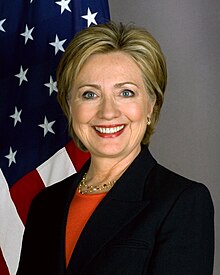Critical Perspectives Lecture 27/10/17
Globalization:
Globalization has many different definitions.

It can refer to the mass presentation of an idea. It would have to homogenize the idea, value or product that it is trying to convey, so it can be understood by all cultures.
Globalizing has been made easier through advances in technology, and a greater understanding of other cultures.
Globalization considers the extent to which certain political economies "dominate" the world through the process by which global media organisations as "cultural transmitters".
Thus major media organisations on the world stage "drowned out" smaller regional outlets as they tend to follow this lead and effectively replicate their stance and mode of production.
In terms of news, accusations that US style journalism is homogenizing world news coverage, becoming missionaries.
Globalization can be regarded as positive or negative.
Part of the reason it is so big now is because media giants and advertisers want to sell their products/shows to as wide an audience as possible.
If something doesn't have wide enough appeal or exposure it wont succeed at globalization. It needs to be hard hitting or prime public opinion.
An example would be Live Aid in the 80's bringing attention to the famine in Ethiopia, but the crisis in Brazil didn't make global news as the coverage wasn't good enough to make people care.
Grenfall is another example of how successful globalization (making everyone care) can change minds.
Of course global news can have positive connotations. It can highlight cultural issues or differences and encourage democracy.
Globalization can make the world feel smaller and more interconnected, which can be a good thing.
With globalization, especially in drama, we have to consider cultural appropriation. There is always the risk that even when making something for a global audience, the product will reflect the culture that made or adapted it. One example would be the film "Ghost in The Shell", although originally written in Japan it was bought and remade by America and such starred American actors. This ran the risk of alienating its original Japanese audience since it is now aimed at a global market.
Stuart Halls Reception Theory
Agenda Setting Theory
Agenda setting-Who is/isn't in the story?
-What about marginal opinions, are some opinions less represented than others?
-Who is to blame for this? (producers, executives, networks etc.)
Does this create a dominant perspective?
-you can choose any network, programme etc. but essentially they all may be present the same ideas. This could lead to the priming of public opinion, attempting to make them remember certain things and think a certain way. Particularly useful in the lead up to political elections.

Exercise: me/news story you are analysing? Is there really a diverse
global media economy or are certain ‘dominant’ players drowning
out other voices? If so how and why?
• Does cultural imperialism impact the storytelling and story selection
you are analysing? If so how? What case study/examples can you
find? What affect is it having on diversity and representation? What
examples of critical responses to media content (news/fiction
adaptation) can you find?
• Are there issues of cultural appropriation which impact the way in
which a story is viewed/presented either in news or through fiction
adaptation?
No comments:
Post a Comment